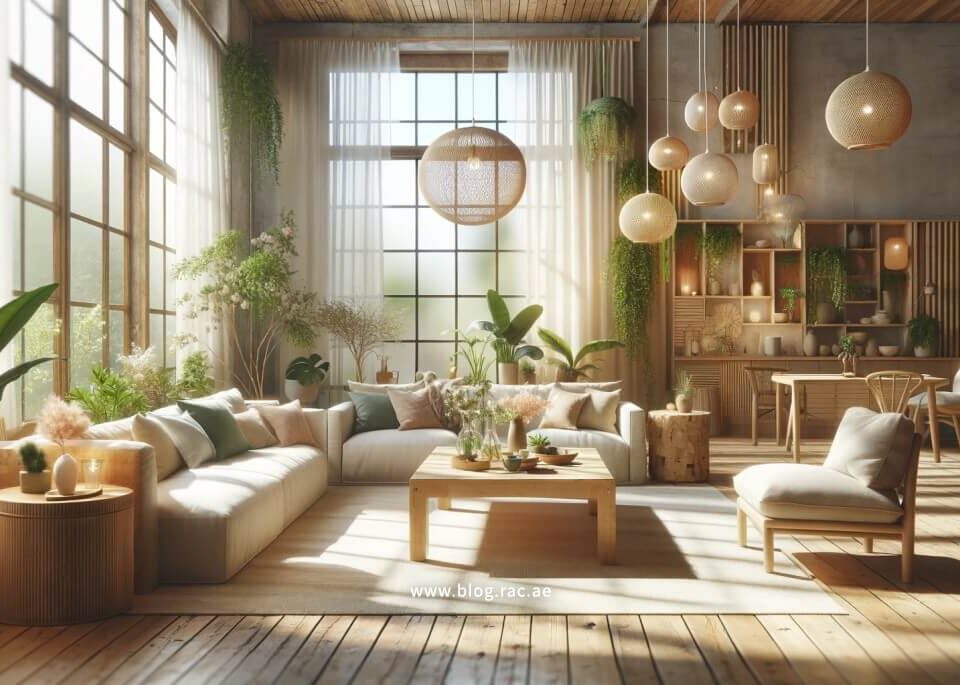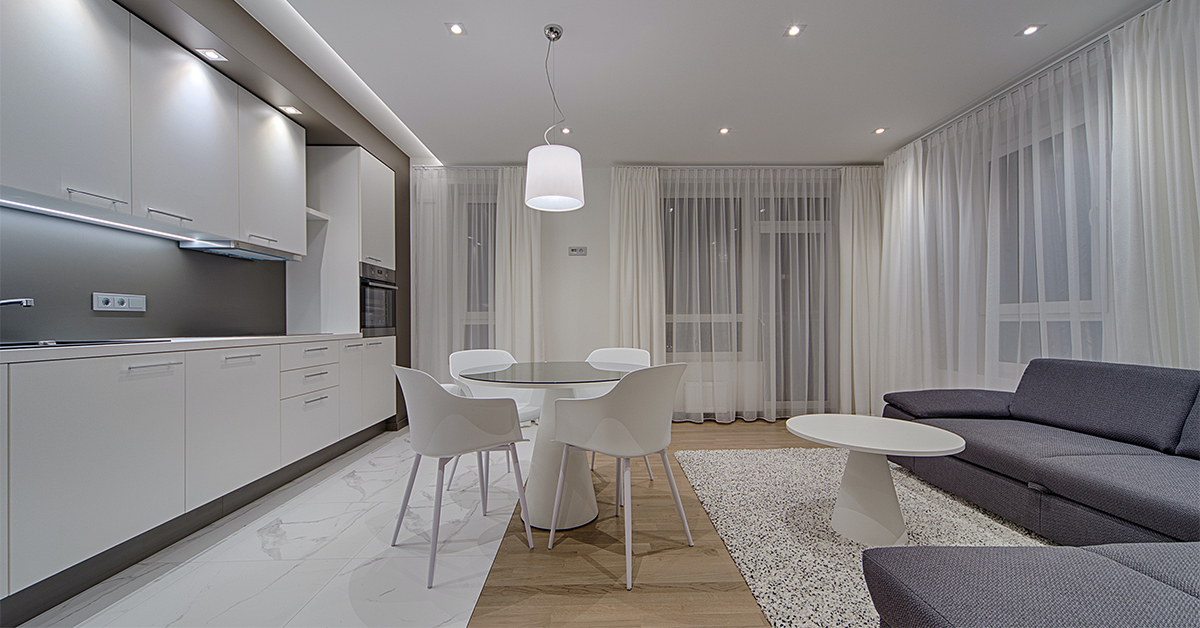
How to Declutter Your Home and Keep It Organized
May 21, 2023
Smart Home Technology and the Future of Interior Design
May 31, 2023How to Create a Stylish and Functional Home Office
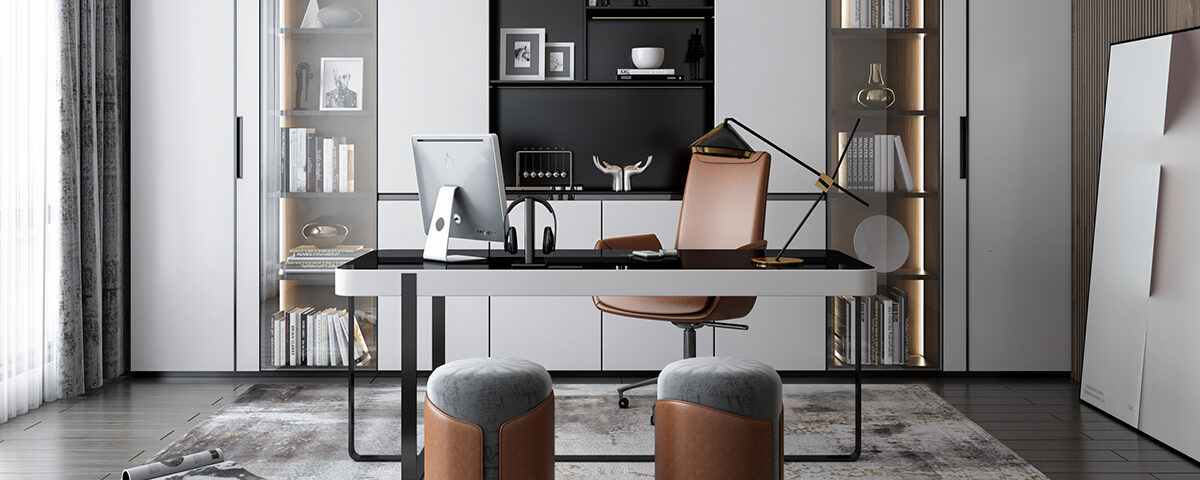
Understanding the Concept of a Home Office
What is a Home Office?
A home office is a dedicated space within your home where you conduct work, whether that’s for your business, remote job, or even personal projects. In today’s digital age, more people are working remotely, making a home office an essential part of the modern home.
Why You Need a Home Office?
Having a dedicated home office promotes productivity, professionalism, and work-life balance. It can provide a quiet and comfortable environment that enables you to concentrate on your tasks while keeping work separate from personal life.
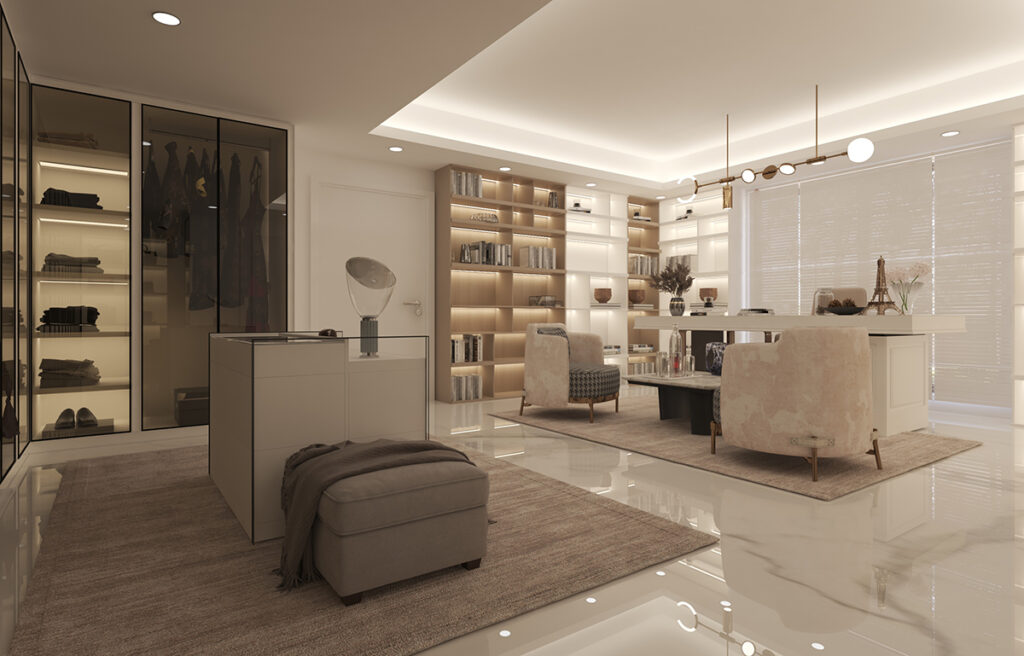
Planning Your Home Office Design
Considerations for Setting Up a Home Office
When planning how to set up a home office, there are several considerations to keep in mind. These include your budget, available space, and the nature of your work. Other factors include lighting, noise levels, and your personal style.
Essential Elements of a Functional Home Office
Choosing the Right Location
Choose a location within your home that is quiet, comfortable, and free from frequent interruptions. The size of your home office will also depend on the nature of your work and the amount of space required.
Taking into Account Space Availability
Regardless of whether you have a separate room for your office or are using a corner of a room, you need to make the best use of the space available. Consider the layout of the room, placement of furniture, and storage solutions.
Creating a Modern and Stylish Home Office
Home Office Decor Ideas
Selecting a Theme
Your home office should be an environment where you feel inspired and motivated. Choosing a theme can help create a cohesive and visually appealing design. It could be minimalist, rustic, or modern, depending on your preference.
Adding Personal Touches
Adding personal touches such as family photos, artwork, or inspirational quotes can make your home office a more enjoyable space to work in. They can reflect your personality and make the space truly your own.
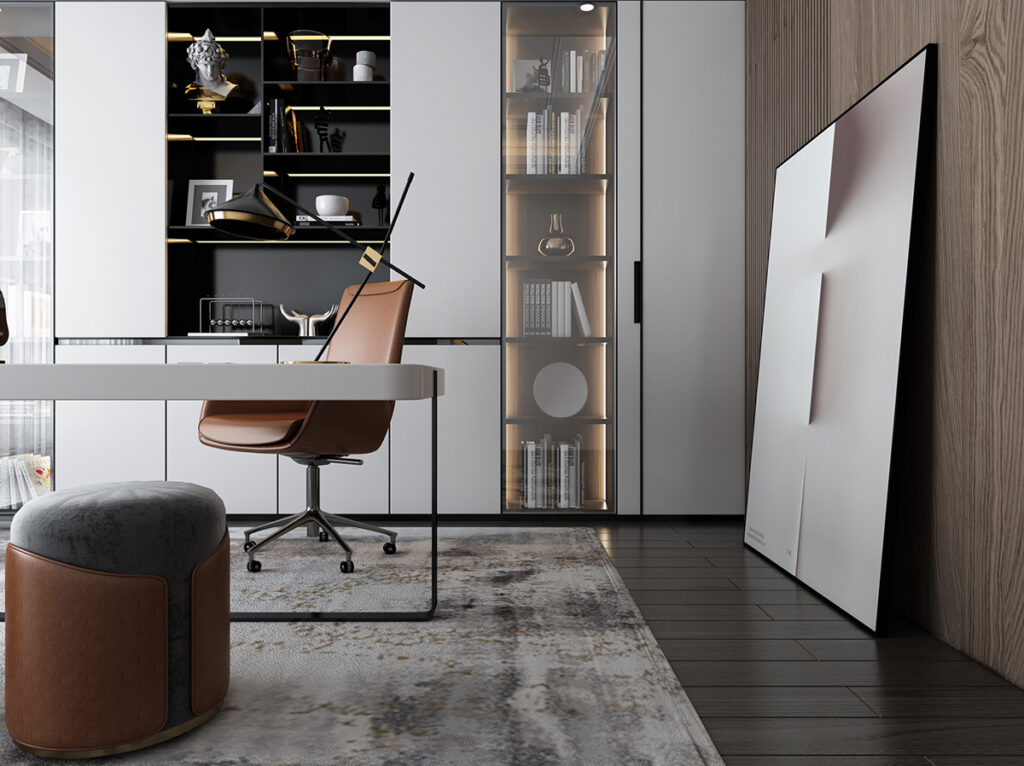
Making Your Home Office Practical
Essential Home Office Furniture
Choosing the right furniture for your home office is critical to both your productivity and comfort. This includes a desk with enough space for your computer and other essentials, a comfortable chair that supports good posture, and storage for files and supplies.
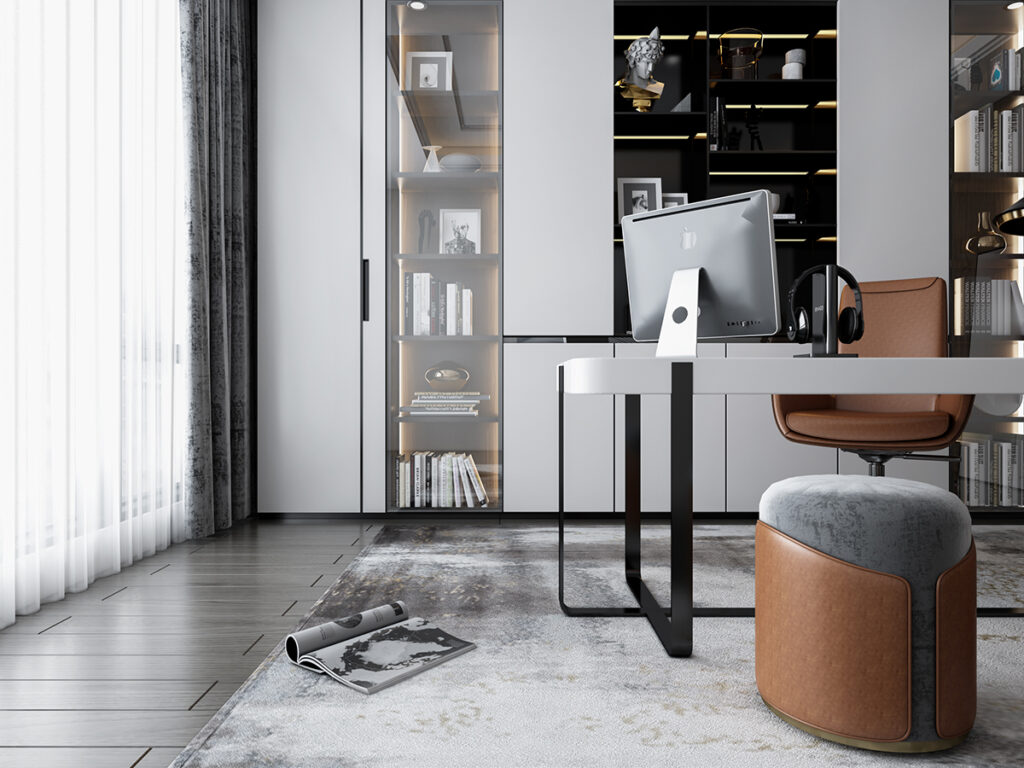
Home Office Organizational Tips
Organizing your workspace can significantly increase your productivity and reduce stress. Keep your desk clutter-free, use storage solutions to keep files and supplies organized, and ensure everything you need regularly is within easy reach.
Smart Storage Solutions for Small Home Offices
For small home offices, maximizing space is key. Use vertical space with shelves or wall-mounted storage, choose furniture with built-in storage, and utilize baskets or boxes to keep small items organized.
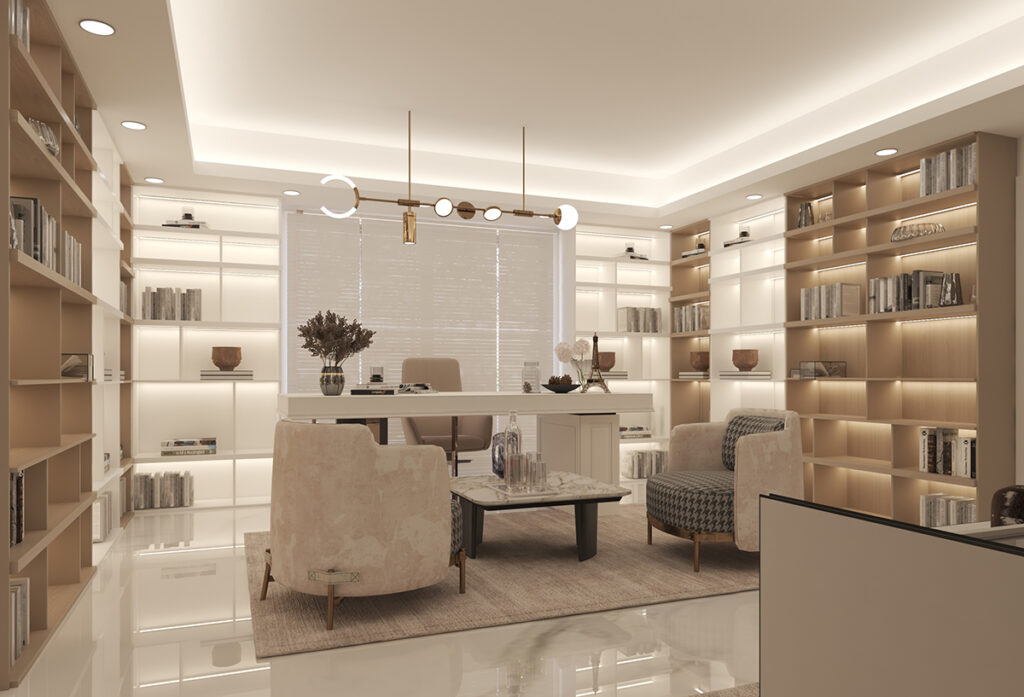
Lighting and Comfort in Your Home Office
Good lighting is crucial in your home office to reduce eye strain and boost mood. Include a combination of natural light, overhead lighting, and task lighting. Ensure your space is well-ventilated and maintain a comfortable temperature for optimal productivity.
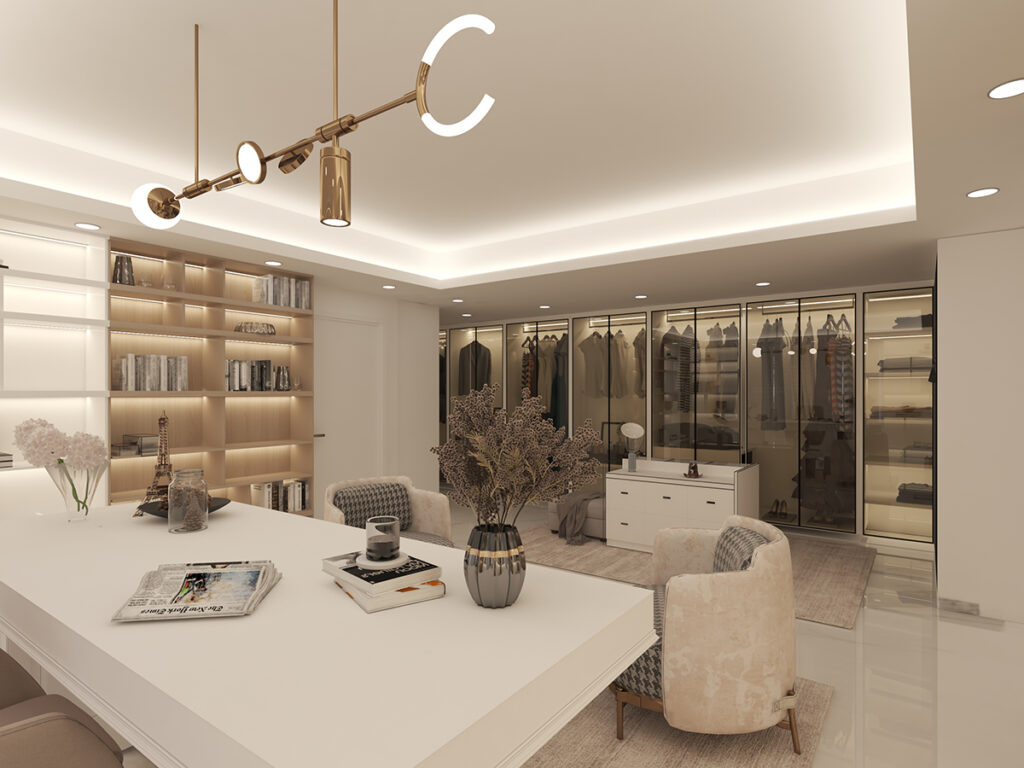
Key Takeaways: Designing Your Ideal Home Workspace
Effective Planning: Understanding your specific work needs and personal style is crucial in creating a space that is both functional and enjoyable.
Smart Furniture Choices: Investing in ergonomic and space-efficient furniture can drastically improve your comfort and productivity.
Personalization is Key: Making your office feel personal and inviting will encourage productivity and make your workday more pleasant.
Lighting and Comfort: Proper lighting and a comfortable setting are essential for maintaining focus and preventing fatigue.
Conclusion: Building Your Ideal Home Office
Creating a stylish and functional home office involves understanding your needs, carefully planning your space, and personalizing it to reflect your style. Whether it’s a small corner or a large room, a well-designed home office can enhance your productivity, motivation, and work-life balance.
FAQs
1. How can I make my home office multifunctional?
When space is limited, consider furniture that can serve multiple purposes, such as a desk that can double as a vanity or a futon that can serve as a guest bed.
2. What is the best color for a home office?
The best color for a home office depends on personal preference, but some research suggests that blues and greens can enhance productivity and reduce stress.
3. How do I create a home office in a small space?
Make use of vertical space with shelves or wall-mounted storage, choose compact furniture, and keep your space organized and clutter-free.
4. How can I make my home office comfortable?
Invest in ergonomic furniture, ensure good lighting, and maintain a comfortable temperature. Add personal touches to make the space enjoyable to work in.
5. Can I deduct my home office on my taxes?
In some cases, you may be able to deduct home office expenses on your taxes. Check with a tax professional to understand your eligibility and the specific requirements.
6. What defines a home office?
A home office is a space within your home set aside primarily for work-related activities. It can be used for running a business, telecommuting, or handling personal projects. This space is essential for anyone looking to achieve a work-life balance while operating from home.
7. Why is having a home office important?
A dedicated home office helps in maintaining professionalism and productivity. It provides a controlled environment separate from daily home life, allowing for focused work time without typical home distractions.
8. What should I consider when setting up a home office?
Key considerations include your budget, the nature of your work, and the available space. You should also think about the ergonomic setup of your furniture, the lighting, and how the office space fits into the overall style of your home.
9. How do I choose the best location for my home office?
Select a location that minimizes noise and interruptions. The ideal space should be comfortable and have enough room for your work needs. This might be a spare room or a quiet corner in your living area, depending on your space constraints.
10. What are some design themes suitable for a home office?
Your home office should be a reflection of your personal style whether it’s minimalist, rustic, or modern. Choose a theme that motivates you and makes you feel comfortable and productive.
11. How can I personalize my home office?
Incorporate elements that inspire you such as family photographs, artwork, or collections. Personal touches will not only enhance the aesthetic appeal of your office but also make spending time there more enjoyable.
12. What furniture is essential for a functional home office?
Essential furniture includes a desk large enough for your tasks, an ergonomically supportive chair, and adequate storage solutions for your needs. These pieces should support your productivity and comfort throughout the workday.
13. How can I effectively organize my home office?
Keep your workspace tidy by using organizational tools like drawer dividers, file cabinets, and bookshelves. Regularly declutter and ensure that everything you need for your work is within easy reach to maximize efficiency.
14. What are some storage solutions for small home offices?
For smaller spaces, think vertically by installing shelves above your workspace or using wall-mounted cabinets. Multi-functional furniture, such as desks with built-in shelves or storage ottomans, can also maximize your space.
15. How do I ensure good lighting in my home office?
Combine natural light with artificial lighting solutions. Position your desk to maximize daylight exposure and add task lighting, such as a desk lamp, to illuminate your workspace during darker hours or for focused tasks to reduce eye strain.
Enjoyed this post? Never miss out on future posts by following us»

